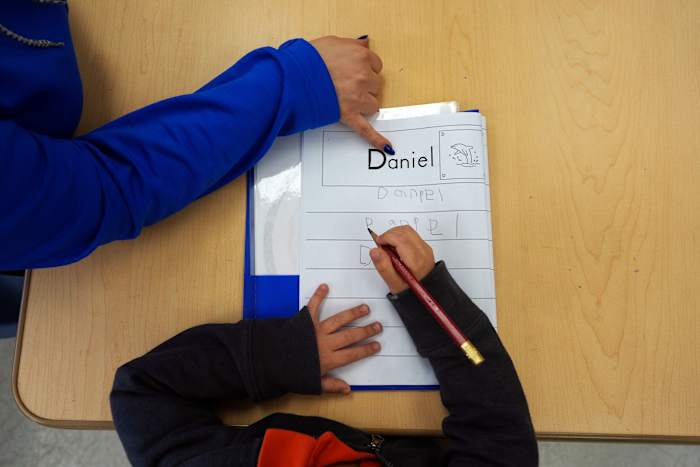Is Trump’s Social Services Policy for Undocumented Immigrants on the Chopping Block?

Published: 2025-09-10 21:02:13 | Category: policy GNEWS Search
The recent ruling by a federal judge has temporarily halted the Trump administration's restrictions on services available to immigrants living in the United States without legal status. This decision affects essential programs such as Head Start, health clinics, and adult education across 20 states and the District of Columbia, allowing continued access while the case is ongoing.
Last updated: 27 October 2023 (BST)
Key Takeaways
- A federal judge has blocked restrictions on services for undocumented immigrants, including Head Start.
- The ruling impacts 20 states and the District of Columbia.
- The lawsuit was filed by Democratic attorneys general who argue that the administration bypassed necessary rulemaking processes.
- Access to community-level programs has been curtailed under the new rules.
- The judge's order is a temporary hold while further legal proceedings are underway.
Background of the Ruling
The order from U.S. District Judge in Rhode Island emerged from a lawsuit filed by a coalition of Democratic attorneys general. These states claimed that the Trump administration's changes to federal policy were not only unlawful but also potentially harmful to communities reliant on these services. The lawsuit emphasised that the administration failed to follow the proper rulemaking process, which is mandated by law, thereby neglecting to provide adequate notice regarding the restrictions on federal funding.
Impact on Immigrant Services
Under the previous administration, individual public benefits such as food stamps and college financial aid have been largely inaccessible to individuals without legal status. However, the new guidance was intended to further restrict access to community-level programs that are crucial for immigrant families. This includes educational services, health care, and early childhood programmes, which play an essential role in supporting vulnerable populations.
What the New Rules Entailed
The Trump administration's interpretation of federal policy aimed to limit the eligibility of undocumented immigrants for various services. Specifically, this included:
- Restricting access to federal preschool programmes like Head Start.
- Curtailing health clinic services that cater to low-income individuals.
- Limiting adult education programmes that help non-native English speakers integrate into society.
The administration argued that these changes were necessary to ensure that federal resources are allocated to citizens and legal residents. However, the opposition contended that such restrictions would disproportionately harm low-income immigrant families who rely on these services for their well-being and integration into society.
The Legal Arguments
The states’ lawsuit was built on several key legal arguments:
- Failure to Follow Rulemaking Process: The plaintiffs argued that the administration did not adhere to required legal procedures, which include public notices and opportunities for comment from affected communities.
- Risk of Significant Harm: The states claimed that the changes would create significant harm to immigrant communities, particularly in terms of access to education and health care.
- Impact on Federal Funding: The lawsuit highlighted the potential loss of federal funding for community programmes that serve vulnerable populations, suggesting that the new rules would deter service providers from offering essential assistance.
What Happens Next?
The judge's decision to block the implementation of the new rules is not permanent but serves as a temporary measure while the case proceeds through the court system. This legal battle is expected to unfold over several months, with potential implications for the Biden administration’s approach to immigration and public service access.
Implications for the Biden Administration
The ruling puts pressure on the Biden administration to address these issues comprehensively. As they navigate the complexities of immigration policy, the administration must consider the needs of both immigrant communities and the legal frameworks governing public services. This ruling may set a precedent for future policies regarding immigrant access to federal resources.
Community Reactions
Community organisations and advocates have welcomed the judge’s decision as a victory for immigrant rights. Many expressed concerns over the potential consequences of the restrictions on vulnerable populations who depend on these essential services. Advocates argue that access to education and health care is a fundamental right, and any barriers placed on these services are detrimental to society as a whole.
Conclusion
The federal judge's ruling marks a significant moment in the ongoing debate about immigration policy in the United States. By blocking the Trump administration's restrictions, the court has reaffirmed the importance of access to vital services for all individuals, regardless of their immigration status. As the legal proceedings continue, the outcome will not only affect the lives of millions of immigrants but will also influence the future direction of public policy in America.
As this situation develops, it raises broader questions about how society values and supports its most vulnerable members. What changes will be made in light of this ruling, and how will it shape the landscape of immigrant rights in the United States? #ImmigrantRights #PublicServices #LegalReform
FAQs
What is the significance of the federal judge's ruling?
The ruling temporarily blocks restrictions on public services for undocumented immigrants, maintaining access to essential programmes while legal proceedings continue.
Which services are affected by the restrictions?
The restrictions targeted programmes like Head Start, health clinics, and adult education services, limiting access for immigrants without legal status.
What are the main arguments against the administration's new rules?
The main arguments include failure to follow required rulemaking processes, potential harm to immigrant communities, and the risk of losing federal funding for essential services.
How long will the legal battle last?
The legal proceedings could take several months to resolve, depending on the court's schedule and the complexity of the issues at stake.
What could be the long-term implications of this ruling?
The ruling may influence future immigration policies and public service access, potentially leading to more protections for immigrant rights in the United States.



